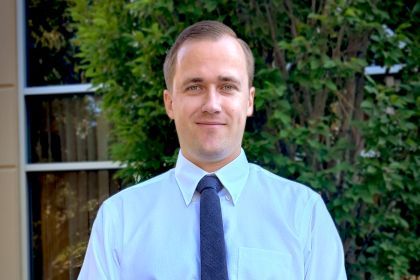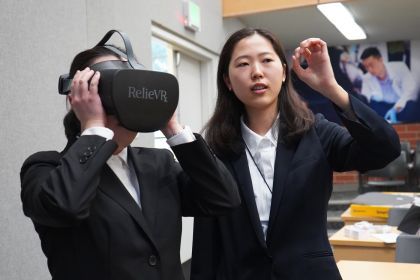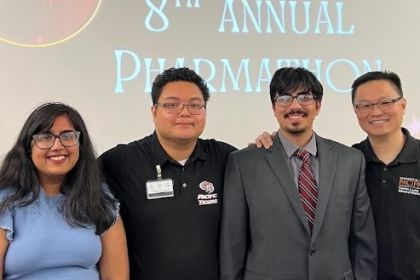Breadcrumb
Pacific researchers explore new ways to protect the brain from stroke
On average, every 40 seconds someone in the United States has a stroke according to the American Heart Association. Robert F. Halliwell Ph.D., professor of physiology and pharmacology in the Thomas J. Long School of Pharmacy and Health Sciences, and his research team are exploring novel ways to protect the brain from stroke.
"Stroke is a leading cause of disability and death in the U.S. with around 800,000 Americans suffering a stroke each year, and 150,000 of these patients die as a result of their stroke," said Halliwell. "At this time, we do not have any effective treatments, other than a clot-busting drug that must be administered within three hours of one type of stroke occurring. Unfortunately, the impact of a stroke is long-lasting because the brain does not heal."
Halliwell and his co-investigator, Parto S. Khansari '07 Ph.D., recently published an article about this current research, "Mechanisms Underlying Neuroprotection by the NSAID, Mefenamic Acid in an Experimental Model of Stroke," in the leading peer-reviewed journal, Frontiers in Neuroscience.
"Few labs in the world can conduct the study we have just published," Halliwell said.
The study focused on mefenamic acid, also known as Ponstel, a non-steroidal anti-inflammatory drug used for mild-to-moderate pain. Halliwell and his team concluded that the brain could be protected by Ponstel.
"The pharmacology of Ponstel is quite complex, but all of its actions in the brain may contribute to its ability to reduce stroke damage," Halliwell said. "Our research also indicates that old drugs, like mefenamic acid, might be repurposed for new uses in the fight against human diseases and disorders."
This research could have a much broader application.
"Other medicines in this class of anti-inflammatory drugs may have similar protective properties," Halliwell said. "Our work demonstrates that basic biomedical research is essential if we are to find 'cures' for human diseases. [...] Medicines that have targeted only one element in its pathology have, so far, failed to prevent or reduce the brain damage that ensues." Medicines with multiple actions may be a more effective treatment strategy and a model for further drug development.
Khansari earned her doctor of philosophy in pharmaceutical and chemical sciences at Pacific. She trained in Halliwell's lab, and they continue to collaborate on research. Halliwell says Khansari's skill set and dedication to research have paved the way for her success in academia and the pharmaceutical industry. Engaging with research is beneficial for all students pursuing careers in health care.
"Our research informs our teaching and students greatly benefit from new knowledge that we are able to pass on to them," Halliwell said. "Ultimately, conducting science is a powerful method of investigation and problem-solving that can be applied to many aspects of life, including rationale patient care by all health care professionals."





